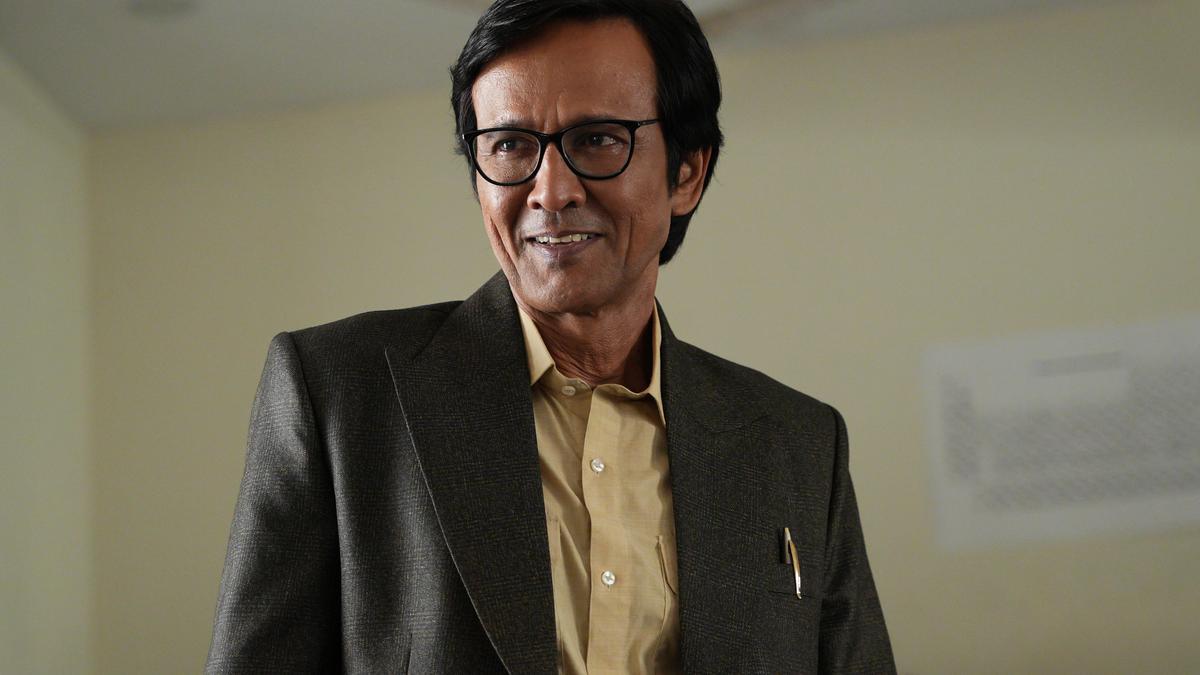
Indian television, particularly during its golden era, has gifted audiences with some unforgettable sleuths. Compare that to today’s streaming shows, which are considered ideal for quirky and expansive storytelling, and they often fall short. However, one standout production from last year was Vishal Bhardwaj’s “Charlie Chopra & The Mystery Of Solang Valley,” an admirable effort featuring Wamiqa Gabbi as a witty and swearing Emily Trefusis. This trend continues with Kay Kay Menon’s new endeavor under the direction of Srijit Mukherji.
“Shekhar Home,” now streaming on JioCinema, features Kay Kay Menon portraying a Bengali version of Sherlock Holmes. Set in the fictional, sleepy town of Lonpur during the 1990s, the series takes inspiration from Arthur Conan Doyle’s original stories but injects them with a distinct Bengali cultural flair. “Ei to jibon, Kali da (such is life, Kali brother),” Shekhar says to a suspect in the opening episode, showcasing the unique linguistic twist. Even the café in the series amusingly plays with cultural references by being named ‘Khasha Blanca’.
“Home is a bona fide surname in Bengal,” Kay Kay Menon points out. He emphasizes that their show is deeply rooted in Indian sensibilities. “Our show is very Indian. It is set in the early 1990s, a time before the invasion of computers and electronic devices. This lack of technology makes detection work even more intriguing and physically engaging. The whole town is sluggish and quaint, reminiscent of the Malgudi Days.”
When asked about his favorite rendition of Sherlock Holmes, Kay Kay Menon doesn’t hesitate to mention Jeremy Brett’s portrayal on British TV. While he dons a deerstalker on the show’s poster, Kay Kay insists he wanted his interpretation to stem from internal character insights rather than relying on Holmes’ iconic quirks and professional idiosyncrasies.
“I play the person, not the profession,” Kay Kay explains. “My focus isn’t on how swiftly Shekhar can use a prop. I aim to grasp the essence of the person, to connect on a human level. It’s a psychological process that actors like us follow.”
Menon is no stranger to detective literature. Growing up, he devoured stories by Conan Doyle, alongside tales crafted by Agatha Christie, The Hardy Boys series, and Enid Blyton’s The Famous Five. This early love for intricate narratives has persisted into his adulthood, heavily influencing his acting style. “Long after I’ve completed shooting a scene, the image that lingers isn’t the one caught by the camera but the vivid picture I had in mind while reading the script,” he recounts, a phenomenon he frequently experienced during the filming of “Shekhar Home”.
He refers to himself as an “impressionist” actor, a term traditionally reserved for painters. Recently, he’s added another descriptor: “simulator”.
“In modern flight simulators, the experience of piloting a plane is so uncanny that authorities had to remove crash modes because they were causing real panic attacks among pilots. Similarly, as an actor, my simulation of a character must be equally life-like,” Kay Kay elaborates.
.
Kay Kay Menon remains resolute in his belief in the audience’s intelligence, a conviction that has remained unshaken through his three-decade-long career. Even while working within the landscape of mainstream Hindi cinema, he offers subtle gestures and cues where others might opt for overacting. In the 2005 film “Sarkar,” his portrayal of film financier Vishnu includes a scene where his character gazes at a young starlet with palpable, lusty malevolence—a moment that left a lasting impression on a segment of his audience.
“I sincerely believe that audiences are intelligent. They may not always be intellectual, but they possess life-smarts that make them adept at navigating films as well. If they can handle life’s complexities, grasping a film should be no ordeal,” Kay Kay posits.
Currently, Menon is enjoying his prolific spell on various streaming platforms. He has appeared in “The Great Indian Dysfunctional Family,” the much-lauded “Farzi,” two seasons of “Special Ops,” and the crime saga “Bambai Meri Jaan.” He also stars in the survival drama “The Railway Men” and has a ‘glorified cameo’ in the upcoming “Citadel: Honey Bunny,” which features Varun Dhawan and Samantha Ruth Prabhu. Additionally, his new series “Murshid” is set to release later this month.
Lately, Menon has also become more visible in the media. Before our interview, he tactfully completed a shoot with a ‘youth platform,’ responding to rapid-fire questions and offering advice for Gen-Z audiences. His Instagram presence boasts 407k followers and 477 posts, mostly dedicated to work announcements, collaborations, and festival greetings. While his social media seems engaged, it remains impersonal.
“Social media is an integral part of our lives today,” Kay Kay acknowledges. “I typically use it to promote my work. I hold no grudges against any platform or technology. It demands great creativity to produce a one-minute reel. But it’s a skill I simply don’t possess.”
Kay Kay’s most recent theatrical release was the sports drama “Love All” in 2023. At one time, Kay Kay, along with other stalwarts like Irrfan Khan and Manoj Bajpayee, reigned supreme in alternate cinema—a genre that once had its regular space in cinemas but now appears to be the domain of streaming platforms only.
“Throughout my career, there have been moments where it seemed that content-driven cinema might finally reign supreme. But it never quite happens,” he chuckles.
He attributes this to the Indian audience’s appetite for grand, larger-than-life entertainment. “Blockbusters dominate in India. You can’t easily strip the audience of that craving. They prefer a buffet rather than a single nutritious meal.”
“Shekhar Home” is currently available for streaming on JioCinema.












